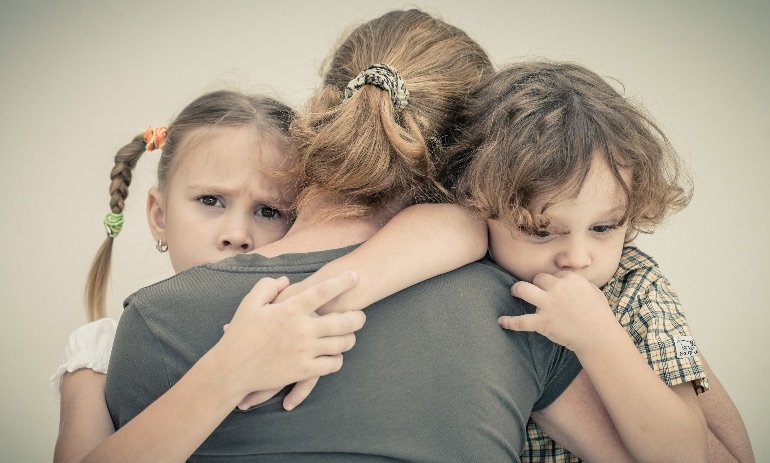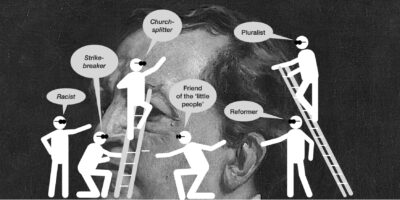Family get-togethers at Christmas and New Year this year will be greatly restricted by official COVID-19 guidelines. Year-end school vacations will be lengthened in several countries to increase social distancing, creating more pressure for parents struggling to juggle job and family at the best of times.
And yet according at least to research in Britain, there has been a positive side for families and marriages to the pandemic lockdown.
Some media reports predicted divorce rates to soar under the increased pressure on parents to home-school, entertain and referee domestic disputes while trying to keep their bosses happy at the online office.
However, my wife discovered good news for marriages while researching for an article requested by a European prayer network. At least in the UK, according to new Marriage Foundation analysis, the corona restrictions have had more positive than negative effects on marriages. Twice as many marriages actually improved during lockdown: one in five couples compared to less than one in ten whose relationship was reported to have worsened.
Couples considering getting a divorce dropped by a third in number, reported Harry Benson with colleague Steve McKay of the University of Lincoln, based on a national survey conducted in June of 2,559 parents who were either married or cohabiting as a couple.
Under the headline: ‘Covid divorce boom? No — lockdown rejuvenates marriages’, The Sunday Times carried the Marriage Foundation’s report last month concluding that lockdown was good news for twice as many marriages as it was bad news.
A UK national survey back in May revealed that a quarter of parents were getting on better with their children compared to just 4% who reported worsened relationships. The Observer reported these findings as “Weird but true“, perhaps betraying media expectancy of the negative.
Commitment is key
While lockdown appeared to have affirmed the commitment of married parents, the story for cohabiting mothers was different. Over one in five believed their relationship had worsened, compared to 7% of married mothers, 6% of cohabiting and 11% of married fathers. They were also more likely than married parents to be unhappy, get on each others nerves or quarrel, the report said.
These findings were echoed in an American report also finding a fall in the number of actual divorces, and that half of married couples’ had felt their appreciation of one another had risen during lockdown, and their commitment had deepened.
Benson believes the key factor in marriage doing better is commitment: “When we commit, we want to be together. But there are factors that also make us have to be together. Lockdown is clearly one of those. So, if we are committed to one another and want to be together, then lockdown shouldn’t have been too much of a burden on our relationship. We want to be together anyway, so lockdown is like wrapping an extra layer around us.”
My wife discovered a further unexpected result of lockdown and the closure of schools: kids began to miss school and their friends. They began to appreciate the privilege of going to school and having time with friends, while also enjoying having more time with their parents, improving family closeness during the corona time.
Family support
As Romkje was writing her column, she followed online a fellow committee member of Marriage Week Netherlands defending his doctoral thesis on the social importance of families. While society had shifted away from recognising the family as the cornerstone of a healthy community, the thesis spotlighted the unique role of the family as a support framework. It argued that the care within a family went further than the support of friends or neighbours. While social workers networks hesitated even to mention the support of the family, such support was far more important than assistance of anonymous and impersonal bodies. Reciprocity between family and society was often seen when a family problem mirrored a problem in the work situation. Job loss affected the whole family.
While the pandemic may not have resulted in a divorce boom, however, national and European agencies have been aware of increased pressures on poorer and more vulnerable families, with a concern for the mental health of both children and adults. Just as family support can be more important than that of impersonal agencies, so too church and community support for the vulnerable is irreplaceable. The challenge to our creativity is how to do this within the current restrictions we all face.
Romkje and I were challenged about neighbourly responsibility by three young Yemeni Muslims who joined us for lunch last week. They told us that their faith required them to seek the welfare of up to their seventh neighbour.
Didn’t the angels say something like that? “Glory to God in the highest, and on earth peace, good will toward humankind.” (TEV).
Till next week,




Great! Simple but very impressive!